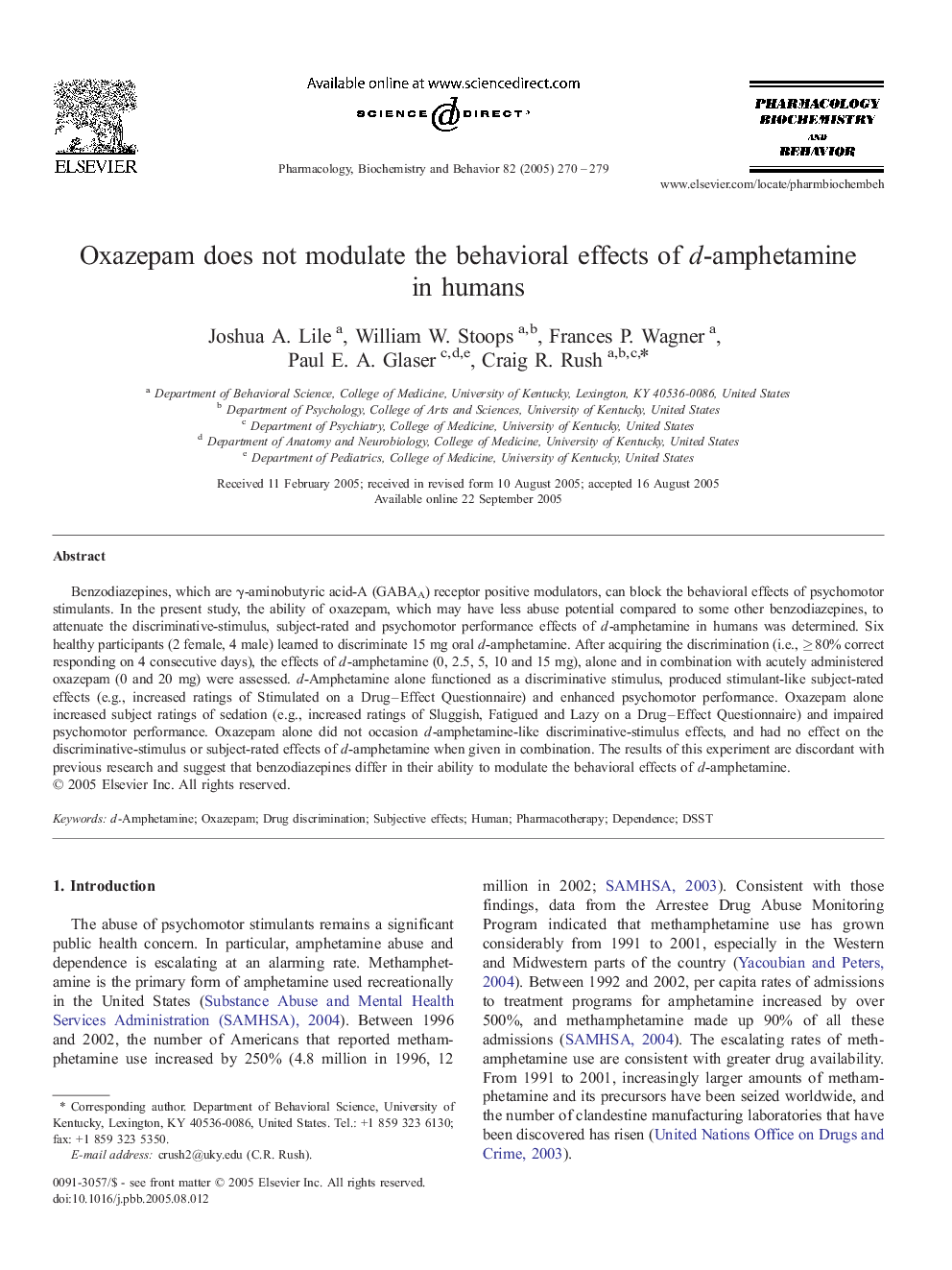| Article ID | Journal | Published Year | Pages | File Type |
|---|---|---|---|---|
| 10838492 | Pharmacology Biochemistry and Behavior | 2005 | 10 Pages |
Abstract
Benzodiazepines, which are γ-aminobutyric acid-A (GABAA) receptor positive modulators, can block the behavioral effects of psychomotor stimulants. In the present study, the ability of oxazepam, which may have less abuse potential compared to some other benzodiazepines, to attenuate the discriminative-stimulus, subject-rated and psychomotor performance effects of d-amphetamine in humans was determined. Six healthy participants (2 female, 4 male) learned to discriminate 15 mg oral d-amphetamine. After acquiring the discrimination (i.e., â¥Â 80% correct responding on 4 consecutive days), the effects of d-amphetamine (0, 2.5, 5, 10 and 15 mg), alone and in combination with acutely administered oxazepam (0 and 20 mg) were assessed. d-Amphetamine alone functioned as a discriminative stimulus, produced stimulant-like subject-rated effects (e.g., increased ratings of Stimulated on a Drug-Effect Questionnaire) and enhanced psychomotor performance. Oxazepam alone increased subject ratings of sedation (e.g., increased ratings of Sluggish, Fatigued and Lazy on a Drug-Effect Questionnaire) and impaired psychomotor performance. Oxazepam alone did not occasion d-amphetamine-like discriminative-stimulus effects, and had no effect on the discriminative-stimulus or subject-rated effects of d-amphetamine when given in combination. The results of this experiment are discordant with previous research and suggest that benzodiazepines differ in their ability to modulate the behavioral effects of d-amphetamine.
Keywords
Related Topics
Life Sciences
Biochemistry, Genetics and Molecular Biology
Biochemistry
Authors
Joshua A. Lile, William W. Stoops, Frances P. Wagner, Paul E.A. Glaser, Craig R. Rush,
